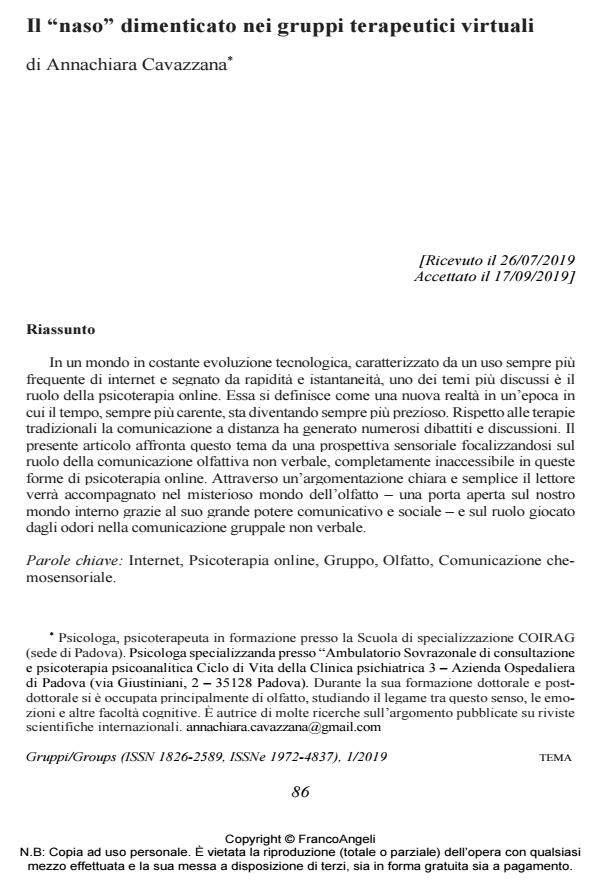The forgotten nose within the virtual therapeutic groups
Journal title GRUPPI
Author/s Annachiara Cavazzana
Publishing Year 2019 Issue 2019/1
Language Italian Pages 7 P. 86-92 File size 195 KB
DOI 10.3280/GRU2019-001007
DOI is like a bar code for intellectual property: to have more infomation
click here
Below, you can see the article first page
If you want to buy this article in PDF format, you can do it, following the instructions to buy download credits

FrancoAngeli is member of Publishers International Linking Association, Inc (PILA), a not-for-profit association which run the CrossRef service enabling links to and from online scholarly content.
The human sense of smell is an area which has been under estimated, especial-ly in psychotherapy. Recently, an increasing body of ground-breaking evidence has demonstrated the crucial role that odors play in our lives. Most importantly for the topic of the present paper, each individual produces a unique odor signature which is able to communicate - mostly subconsciously - awide range of social in-formation (e.g., emotions, health status, age) to conspecifics. Nowadays, there is an ever-increasing number of people delivering psychotherapies over internet as a practical alternative to traditional methods. However, we need to consider the limi-tations linked to the non-verbal domain on the analytic dialogue. The aim of the present paper is to focus on the role of the sense of smell as a medium for convey-ing important social information within a group.
Keywords: Internet, Online psychotherapy, Sense of smell, Group, Chemosensory communication.
Annachiara Cavazzana, Il "naso" dimenticato nei gruppi terapeutici virtuali in "GRUPPI" 1/2019, pp 86-92, DOI: 10.3280/GRU2019-001007